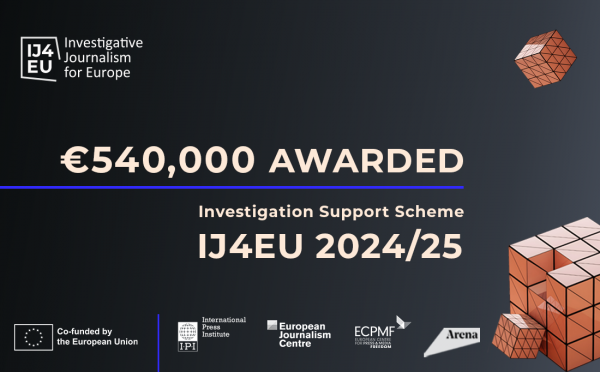The report on the public inquiry into the practices of UK newspapers led by Lord Justice Leveson was released yesterday, amid ardent criticism of what some observers interpreted as a door-opener for stricter, statutory regulation of the press.
In a speech accompanying his presentation of the report, Leveson noted that “the press, operating freely and in the public interest is one of the true safeguards of our democracy”. However, he also suggested that the press’ “power and influence carries with it responsibility to the public interest” and that the inquiry showed that such “responsibilities have been ignored”.
Commenting on Leveson’s recommendations, the International Press Institute (IPI) said it welcomed a number of ideas in the report on the press in Britain, in particular the suggestions for fast track arbitration for complaints. IPI added, however, that it remained opposed to the report’s suggestion for enshrining the new regulation system in the law.
IPI also said that it would monitor with care the implementation of a new system since it was likely to raise press freedom issues of importance.
The British government established the inquiry in July 2011 following the News International phone hacking scandal, in which journalists from the publisher’s News of the World newspaper were accused of illegal phone hacking and police bribery in pursuit of stories.
Leveson’s report is the outcome of over one year of hearings with representatives of the press, state institutions, police and victims of press offences.
While acknowledging that a great part of the responsibility for the phone hacking scandal lay with the police and that “this inquiry may not have been necessary if the criminal law had simply operated more efficiently”, Leveson, in his speech, stressed that “law enforcement can not be the whole answer” as “the powers of law enforcement are significantly limited because of the privileges that the law provides to the press, including the protection of its sources”.
Following an assessment of the breaches of professional journalistic standards by the press and of the limits of the Press Complaints Commission (PCC) as a self-regulator, Leveson’s report recommends the creation of a new “independent and effective system of self-regulation of standards” which is at the same time independent of the industry and of political control. Leveson added that any self-regulatory body with editors on the main board could not be independent from the industry.
Such a body, Leveson recommends, must “promote high standards of journalism and protect both the public interest and the rights and liberties of individuals”. In order to do so, it should have the power to:
Set and enforce standards
Hear individual complaints against its members
Provide fair, quick and inexpensive arbitration service to deal with civil law claims, and
Demand prominent apologies and impose fines of up to one million pounds
While stating that the chair and the majority of other members of the body must be independent of the press, Leveson said he saw value in the involvement of editors in setting the professional standards.
The most controversial aspect of the Leveson report is its recommendation that legislation be put in place to achieve three purposes: “It would enshrine, for the first time, a legal duty on the government to protect the freedom of the press…it would provide an independent process to recognise the new self-regulatory body and…it would provide new and tangible benefits for the press.”
The report also analyses the relationship between the press and police, as well as between politicians and the press, highlighting the possibility that a too-close relationship between press industry leaders and politicians may have led to the perception that policy decisions may have been taken in the interest of the industry, rather than in the public interest.
While Leveson, in his first statement after the publication of the report, argued that the solution suggested in the report “is not and cannot reasonably or fairly be characterised as statutory regulation of the press,” British Prime Minister David Cameron expressed “serious concerns and misgivings” about writing elements of press regulation into the laws of the country. Cameron expressed full agreement with the principles of self regulation suggested by the Leveson report and he recommended that they be “put in place rapidly” because “the status quo is not an option”.
Following a meeting between Cameron, Deputy Prime Minister Nick Clegg and opposition leader Ed Miliband, Cameron reportedly said that “he would allow the culture department to prepare a draft bill on state underpinning of a new regulatory body,” The Guardian reported. In their reactions to the Leveson report, Clegg and Miliband said they were in favour of setting up a state-backed body to oversee the self-regulatory body, as per Leveson’s suggestion.


